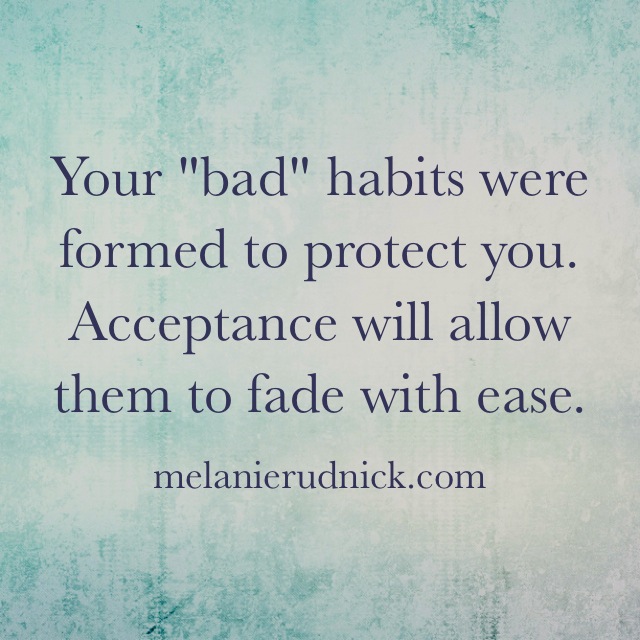A few weekends ago was Thanksgiving, and there certainly was a lot of talk about overeating. People speak of it so matter-of-factly, as if it’s just something everyone does at this holiday. I used to be one of those people, but over the years my eating patterns have changed. This year, I noticed that I actually didn’t eat that much at my Thanksgiving dinner. This wasn’t because I was trying to “be good,” but because I ate until I felt satiated and then stopped.
At dinner, my mom’s boyfriend spoke about a study that was done with naturally thin people vs. some that were overweight. In a fasting environment, the naturally thin people had a much more difficult time than those that were overweight. It made complete sense to me because naturally thin people eat when their bodies tell them they are hungry, and almost all overweight people eat when their minds tell them.
So many overweight people, or those who have watched what they eat their whole lives, are completely out of touch with their actual hunger cues. They eat because “it’s time to eat”, because “it’s there”, because “I have no willpower”, because “I’m being good today”, because “I’m being bad today”, because “that’s what the diet says I should eat.” What almost no one talks about is how if we simply tune in and listen to our bodies, we will reach our natural weight without having to “diet.”
This is not so easy for most because we have all been taught what we should and shouldn’t eat. It is rare that I come across a person who actually understands this concept, so don’t think you are alone if you are reading this and think, “I don’t get it.” For so many years, I would eat very little all day, trying to “be good”, and then I would totally fall off the wagon and eat waaaaaay too much. I actually decided one day I wanted to “eat like a normal person,” and I retrained myself to listen to my body instead of my head.
If you are totally out of touch with your physical hunger cues, start paying attention. It is said that the human body needs nutrition every 3-4 hours to prevent energy dips. You don’t want to allow yourself to get too hungry because that is when overeating often occurs, so notice how your body feels 3 hours after your last meal or snack. At first, you may feel nothing because you have spent so many years using your mind to determine when and what to eat. After practicing this for a while though, you will start to notice things like your stomach growling, light headedness, an empty feeling in your gut, a slight nauseous feeling (these are some of my physical cues). I also notice I get VERY cranky when I’m physically hungry.
So many people finish their food because it’s there. Paying attention to your body to learn when to stop is another step. I began by only finishing half of whatever I was eating, and then just noticing how my body felt. If the growling and emptiness still lingered, I had a few more bites, if it was gone, I stopped, knowing that my food wasn’t going anywhere, and that I could eat again the next time I was hungry.
Being in the midst of holiday season can be scary for those who struggle with food and body, but wouldn’t it be great if it were a non-issue this year? My Weight Coach School teacher, Brooke Castillo, once said, “If a piece of grilled chicken doesn’t fix it, you are not hungry.” Try and remember this the next time someone in your office brings in Xmas cookies. If you realize you actually are physically hungry (not just mentally), then your option is to find a healthier snack, or eat a cookie (not ten), and then pay attention to how your body feels after. Bringing consciousness to eating, rather than numbing out is key.
Being naturally thin is a process for most, but it’s another alternative to constantly living on a diet or off of one. For me, it’s been a much more peaceful way of being, and the fact that Thanksgiving and other holidays or events no longer phase me, is a huge testament to that! Believe it or not, your body has all the answers…ya just gotta listen.
For more information on life coaching or weight loss coaching, email me at melanie@melanierudnick.com for a free consultation!















Hi Mel,
Glad you found my research story interesting and useful. I liked how you concisely summarized anecdote, as well as your terminology.
Also appreciated the difference between listening to your mind and listening to your body. I call it LTYB! I also like mind as a mix of cognition and emotion, with varying degrees of awareness. This would cover those who “feed a lonely heart.”
Congrats again.
Mark
stressdoc@aol.com